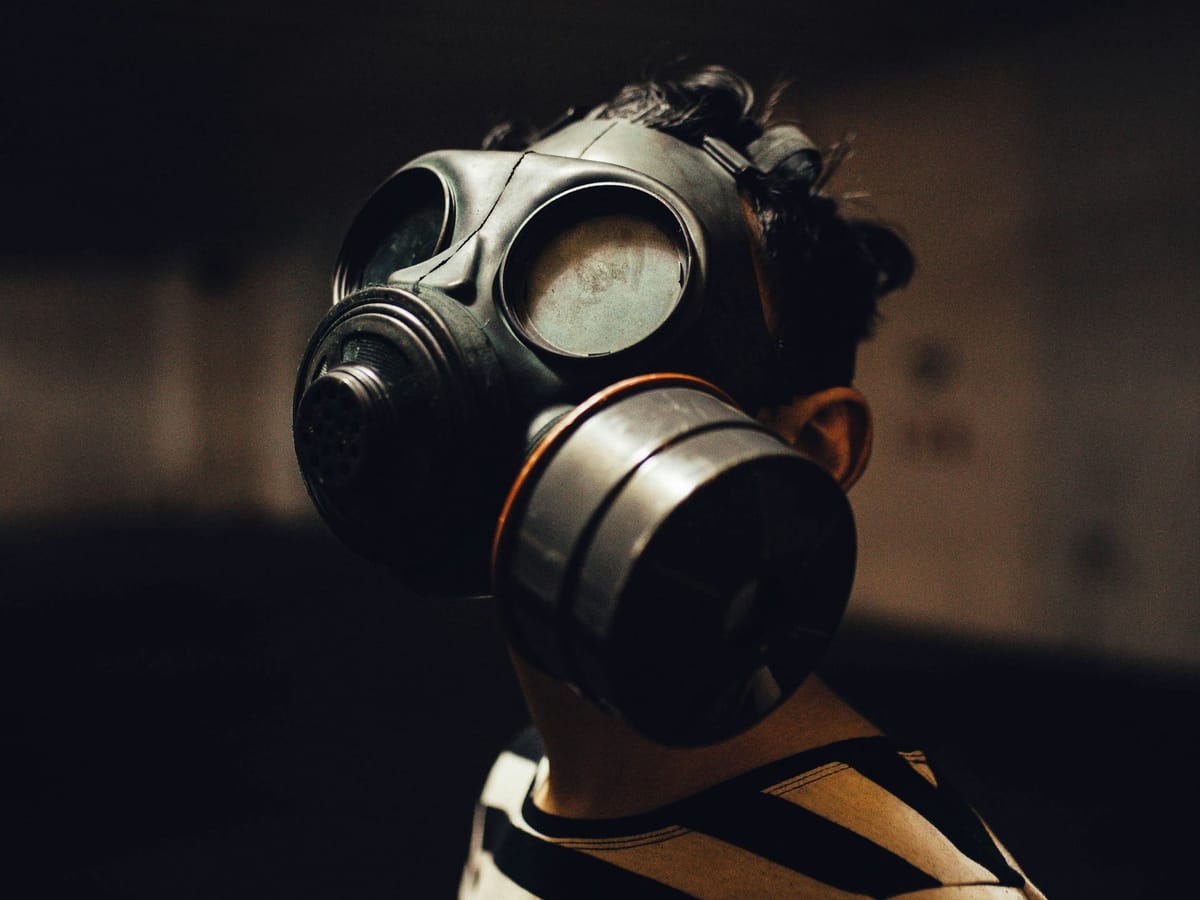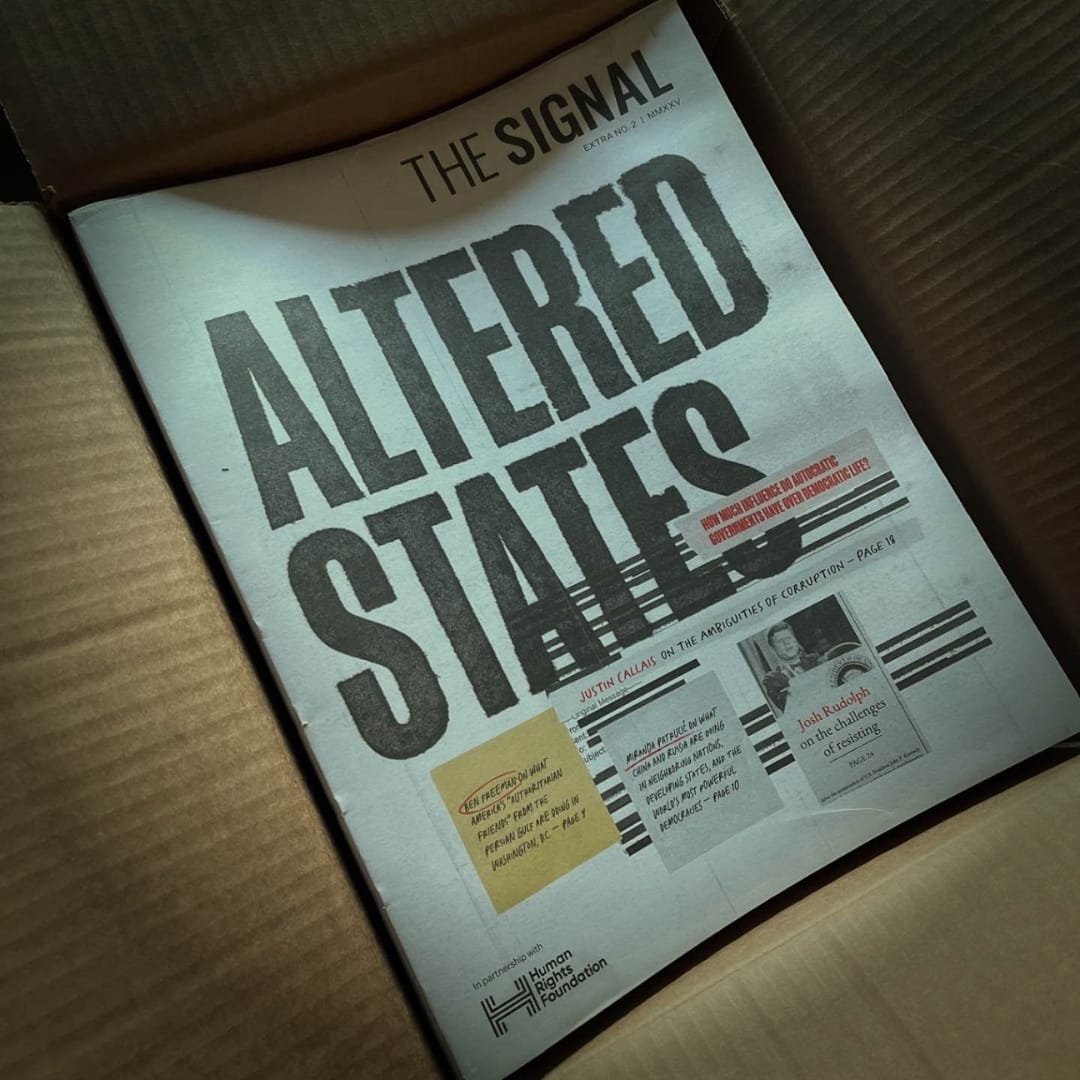Recently: Why do boys keep falling further behind girls in school? Ioakim Boutakidis on a half-century, still-elusive global achievement gap.
Today: Why are there so many toxic chemicals in food? Rashmi Joglekar on where they come from and what they’re doing to people and the planet.
+ Just how radically is Donald Trump changing America’s approach to global trade? What we’re tracking for this week’s member’s despatch. & New music from Loscil …
Feature


Books / from the member’s despatch
The crisis of internationalism. The world economy is in turmoil. U.S. President Donald Trump imposed stunning tariffs on most of America’s biggest trading partners, then paused them for 90 days, and then jacked them up on China to 145 percent. The values of U.S. stocks, government bonds, and the dollar all plummeted—as did stock markets around the world. The International Monetary Fund revised its forecast for U.S. GDP growth this year downward by a third. And then this week, Washington and Beijing agreed to a 90-day truce of sorts, with the U.S. reducing its tariffs from 145 percent to 30, while China cut its tariffs from 125 percent to 10. It seems the one thing certain right now, here as much as with anything in the world, is uncertainty.
As Martin Wolf puts it in The Signal, “We’re somewhere completely new. What we’re going through has never happened before in global trade policy.” It seems like Trump’s “reordering of global trade,” as Commerce Secretary Howard Lutnick put it, couldn’t possibly be in sharper contrast to former President Joe Biden’s effort to renew American economic leadership; Trump is explicitly putting “America first,” while Biden’s National Security Advisor Jake Sullivan said it was “flat wrong” to claim that “American leadership” meant “America alone.”
But just how radically is the new administration changing America’s approach to global trade?
This edition, produced in partnership with the Human Rights Foundation, features conversations—with Ben Freeman, Miranda Patrucić, Justin Callais, and Josh Rudolph—on how authoritarian states build political influence in the U.S., why dictators keep disrupting so many other countries, why autocratic corruption is such a problem for democratic life, and what democracies can do about it.

Developments / what we’re tracking
Targeting the shadow fleet. On Tuesday, the European Union approved a new round of sanctions on Russia in an attempt to stop Moscow’s use of third-country ships—known as its shadow fleet—to sell Russian oil illegally. The new measures banned the 189 ships believed to be in the fleet from using EU ports or insurance companies. The European Commission’s President Ursula von der Leyen said the goal was to ratchet up pressure on the Kremlin to end its war in Ukraine.
- Russia uses these tankers to sell oil around the world, with its two primary customers being now China and India. In 2022, the G7 imposed a global price cap of US$60 a barrel—but Moscow uses the shadow fleet to get around sanctions.
- Income from sales of oil and natural gas is critical for the Russian economy. Despite Western sanctions, Russian GDP grew more than 5 percent last year, and financial analysts are predicting more growth in 2025—enabling the Kremlin to keep paying for the war. … For context, see Dmitri Alperovitch, “War, Inc.”
- The new sanctions show the ongoing unity behind European support for Ukraine. Tuesday’s were the 17th set of sanctions the EU has passed—which include freezing more than $225 in assets belonging to the Russian Federation’s Central Bank—and von der Leyen says the bloc is already drafting an 18th package.
But the question now is whether the U.S. will adopt these new sanctions—or any others. Last month, President Donald Trump threatened Russia with new sanctions and called for an immediate ceasefire in Ukraine, but he backed away from these demands after a phone call on Monday with Russian President Vladimir Putin. After which, Trump posted to social media, “Russia wants to do largescale TRADE with the United States when this catastrophic ‘bloodbath’ is over, and I agree.”
Members play a crucial role in backing our mission to develop a new genre of independent current-affairs coverage—for less than one fine cup of coffee every couple of weeks. Support The Signal.
Coming soon: Félix Maradiaga on how autocratic regimes are using the global banking system, international law, and new technologies in an old struggle to suppress dissent and hold power …
Music
‘Arrythmia’


